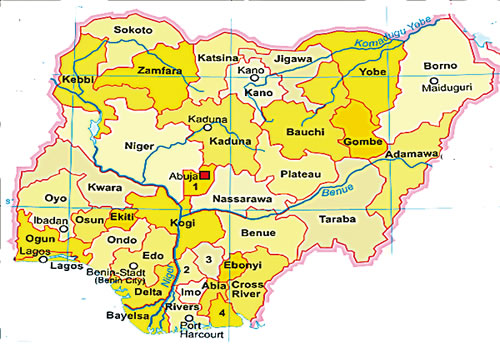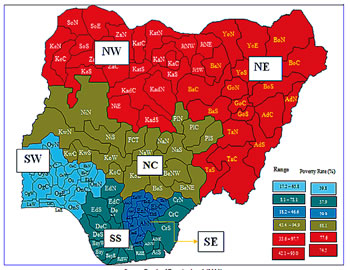We have one of the world’s highest economic growth rates averaging 7.4% according to Nigeria economic report released in July 2014 by the World Bank. For a country with massive wealth and huge population to support commerce, the level of poverty remains unsatisfactory.
Since resources, which could pay for public goods, are directed towards investments, poverty in Nigeria is mostly a rural-issue and whenever the country experiences a period of economic boom, they should be matched with improvement in agriculture. Unfortunately, economic and human damage further escalate the problem of poverty in the country.
The incessant unrest and attacks by various shades of insurgency have created a gaping hole in the society. This has translated to increase in poverty levels on the country. With violence, people tend to embrace migration and are faced with the challenges of resettlement. The lack of strict regulatory and monitoring system has allowed for rampant corruption and this has hindered alleviation efforts and will continue to do so.
The socioeconomic condition in every society is largely dependent on huge capital investments by both the public and the private sector. A debt-ridden economy usually shifts focus to debt servicing instead of economic development. This creates a static economy and leads to increase in poverty.
I urge the federal government to ensure socio-economic development and creation of job opportunities with basic amenities so as to reduce the poverty level to the barest minimum. I also implore the people to involve themselves in entrepreneurial activities so as to reduce poverty in Nigeria.
Yomade Balogun, Fountain University, Osogbo.





